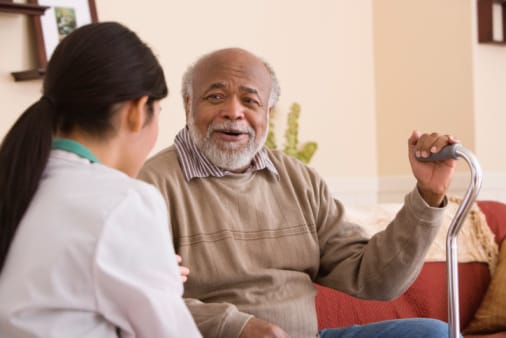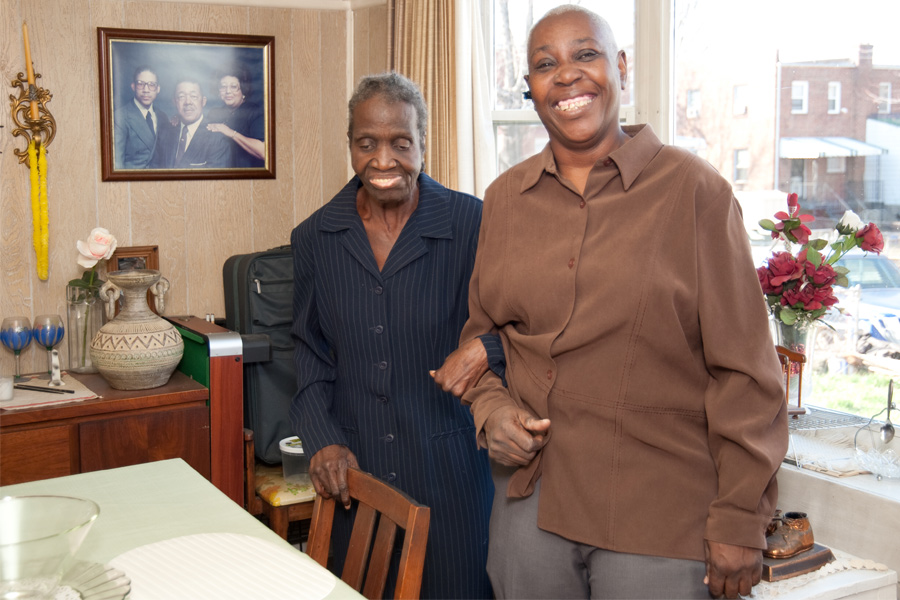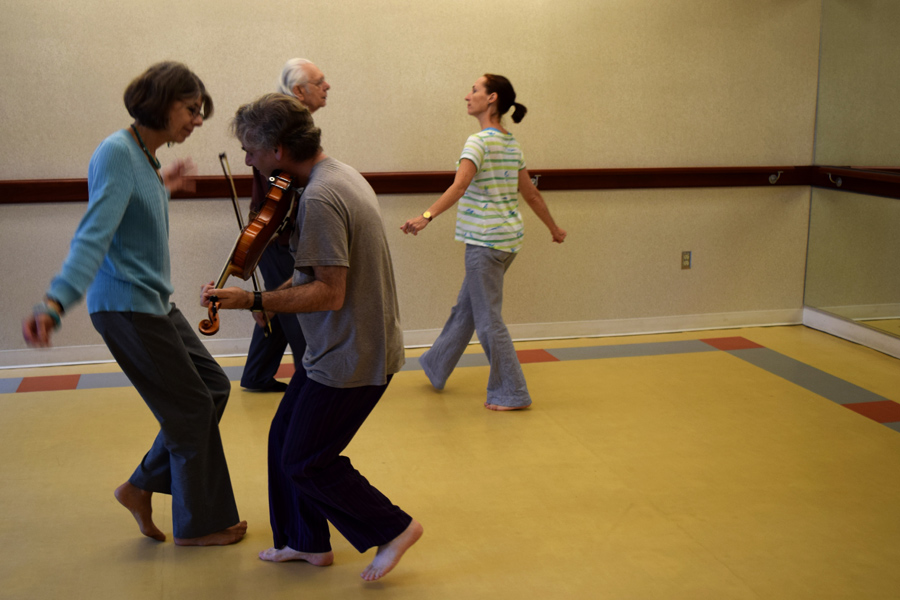The love of a daughter and caregiver

In this essay for National Family Caregivers Month, Safieh Hekmat describes a day in the life of being a family caregiver for her parents during the public health crisis.
Like many people, life after COVID-19 has become much harder for myself and my parents. Both of my parents are 99 years old and have been living with me for more than 10 years; I’ve been their primary caregiver since 2013, when I left my full-time job at the International Monetary Fund.
These days, my parents get up much later, and they want to sleep a lot more. I’ve also noticed they seem to be more anxious and need to have me around all the time. Often my parents call out my name throughout the day or in the middle of the night just to make sure I’m still around. If I ever leave the apartment, my parents always want to know where I went and when I will return home.
Before the pandemic, my parents were very social and would pass the day sitting in the lobby of our building watching people and talking to neighbors. My sister helps take care of my parents part time and would visit us frequently. Unfortunately, to keep my parents safe from the coronavirus, visits from friends and neighbors have decreased. The most emotional downside to this for me has been seeing my parents so isolated with only myself and the day helpers to keep them company.
To compensate for the monotony the pandemic has brought to my parents’ lives, I make sure to give them lots of attention and have them talk to relatives by phone on a daily basis. I also buy them their favorite foods, play music for them, and dance to keep them entertained. We go outside to get some sun and fresh air, and my dad loves it when I take him outside and pass by Dr. Anthony Fauci’s house. I make sure my mom exercises daily. Finally, I prepare meals for them delivered by Iona and include other foods that they enjoy.
Although my friends and relatives praise me for taking care of my parents, they also do not shy away from criticizing me for not taking more time for myself or living a different life–one of my own. At times, they feel pity for me, and that’s something I don’t want people to feel. For me, it has been pure joy to spend time with my parents—I was separated from them as a teenager due to political unrest in Iran, and I didn’t see them for three years. As a single person, I have traveled extensively and had a good life, and now I view my parents as my kids, whom I cherish.
People often come to me for advice about how to care for older adults. Here are five things that I suggest people keep in mind:
- Don’t forget to hug and kiss your parents. They need to be held and feel loved.
- It’s very important for family caregivers to eat healthy.
- You also have to exercise! Go on walks.
- Cherish older people, as they are filled with wisdom and great stories. Try to pay them attention by engaging them in conversation and asking them questions and giving feedback. Even if they seem unalert, they are not always that way.
- If older people do seem forgetful, don’t assume they have dementia—treat them with respect and like an adult. Talk to them about current events, even if you feel they’re not interested. And absolutely NO baby talk!
By Safieh Hekmat
Related Articles

The Stories of Dementia in the District

A Couple’s Vows Create Opportunities to Age Well

Can You Imagine Taking Three Buses to Get to Iona?

